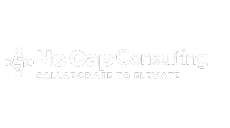Human Resource Glossary
Workforce Planning
Meaning & Definition
Workforce Planning
- Definition: A proactive strategy that ensures an organization has the right people, with the right skills, in the right roles, at the right time to meet its objectives.
- Key Components:
- Forecasting: Anticipating future workforce needs based on business goals, market trends, and growth projections.
- Gap Analysis: Identifying the difference between current workforce capabilities and future needs.
- Talent Management: Developing strategies for recruitment, training, retention, and succession planning.
- Scenario Planning: Preparing for potential workforce challenges, such as economic changes or skill shortages.
- Steps:
- Analyze organizational objectives and goals.
- Assess current workforce capabilities and demographics.
- Identify skill gaps and critical roles.
- Develop a plan to address gaps through hiring, training, or technology adoption.
- Monitor and adjust the plan regularly.
- Benefits:
- Optimized Resource Allocation: Ensures efficient use of human capital.
- Increased Agility: Prepares the organization for market changes or disruptions.
- Reduced Costs: Avoids overstaffing or understaffing scenarios.
- Stronger Employee Morale: Aligns workforce with business priorities, creating job security and clarity.
